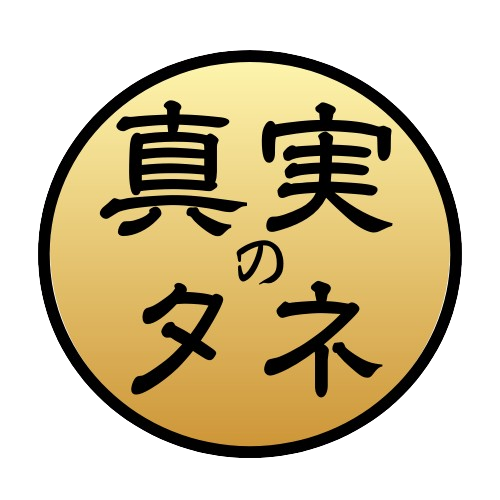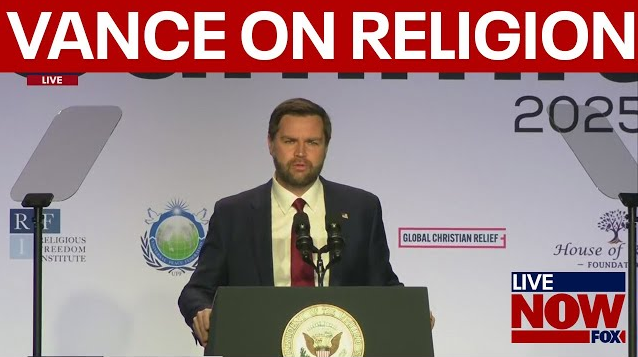要約
本動画では、“第2次トランプ政権”の副大統領として登壇したジェイ・ディー・ヴァンス氏(以下、スピーカー)が「国際宗教自由サミット」において、宗教の自由(Religious Freedom)の重要性と新政権の方針について語っている。主なポイントは以下の通り。
- 宗教の自由は国家の基盤
- アメリカ合衆国の建国の父たち(ジョン・アダムズなど)は、宗教の自由が安定した自由社会の根幹であると認め、憲法でも最初に信教の自由を挙げた。
- スピーカーは、この原理の源流として初期キリスト教神学者(テルトゥリアヌスなど)が「信仰は強制ではなく選択」と説いた歴史に触れる。
- 宗教がコミュニティにもたらす力
- 人々を「神聖(普遍性)」へと導く一方で、地域社会(隣人愛や道徳的責任)への深い結びつきを育む。
- スピーカー自身、厳しい地域環境で育ったが、教会に集うさまざまな立場の人々が互いを支え合う姿勢に感銘を受けたと語る。
- 第1次トランプ政権での宗教自由擁護
- 海外では、中国・中東・アフリカ・欧州などで迫害されている宗教指導者の救済や、ISISによる虐殺の被害を受けた宗教コミュニティ(特にキリスト教徒)への支援を強化。
- 国内では、宗教団体や信者を支援する政策(反ユダヤ主義対策、良心的医療従事者の権利保護、連邦政府との契約における宗教団体への差別撤廃など)を推進した。
- 第2次トランプ政権での方針
- 就任から数週間で、政権として宗教を理由とした連邦政府の“武器化”を終わらせ、信仰を基にした発言の検閲を中止するなどの大統領令を出した。
- 諸外国への支援において、無神論の拡散を目的とする団体などへ公費を投じる矛盾を改め、宗教の自由を侵害する政権にははっきりと対処する方針。
- マルコ・ルビオ国務長官(仮)への期待
- トランプ大統領が国務長官に任命したマルコ・ルビオ氏は、宗教の自由を熱心に擁護する人物であり、世界各地の宗教迫害問題に対して強いリーダーシップを発揮すると説明。
- イラクなどでのキリスト教コミュニティの悲惨な状況にも積極的に対応していくと述べる。
- 結論:共同の取り組みを通じた宗教自由の拡大
- 国内外で宗教を理由とする迫害や圧力が高まる中で、法的保障だけでなく実質的な文化・社会環境を整える必要があると強調。
- 世界各地で迫害に直面する人々を支援し、すべての信仰者が良心に従って自由に信仰生活を営める社会を築くため、関係者全員が力を合わせることを呼びかけた。
VP JD Vance speaks at Intl. Religious Freedom Summit | LiveNOW from FOX – YouTube
https://www.youtube.com/watch?v=MbK9NHUycis
Transcript:
(00:00) a special note of thanks of course to Ambassador saman Brownback my dear friend uh to Katrina atlanto sweat Peter Burns and other Faith leaders government officials and of course many survivors of religious persecution uh thank you all for convening and participating in this Summit uh which is on a topic whose importance unfortunately grows with each passing moment and hopefully our new Administration can help [Applause] now ple please please be be seated I I uh I always feel weird when people are standing up to hear me speak it’s not
(00:37) going to be that good ladies and gentlemen you can have a seat religious freedom of course is the freedom to practice one’s own faith and act according to one’s own conscience and it’s of course the Bedrock of Civil Society in the United States of America and across the world we know in America faith nurtures our communities at home and abroad it Fosters a love for one’s neighbors it inspires generosity and service it calls us to treat one another with dignity to lift up those in need and to build Nations grounded in moral
(01:13) principle in America our founding fathers rightly recognize this listing freedom of religion first among the Liberties enshrined in our great Constitution before he was elected President John Adams who was the first vice president I might add observed that politicians quote May plan and speculate for Liberty but it is religion and morality alone which can establish the principles upon which Freedom can securely [Applause] stand now of course that’s an important lesson for any lawmaker in this room but for all of us in this room but I’m here
(01:53) this morning in part to reflect not only on the words of our Founders but especially on those of their own intellect ual forebears the church fathers of classical Christianity to which we owe the very notion of religious liberty and I know we have people of every Faith here but it is I think a conceit of modern society that religious liberty is a liberal concept but we know that religious freedom flows from Concepts Central to the Christian faith in particular the Free Will of human beings and the insal Dignity of
(02:25) All Peoples we find its foundational tenants in the gospels themselves with Christ famous instruction to Render unto Caesar that which is Caesar’s and unto God that which is God’s early Christians of course suffered greatly and unfortunately many Christians still suffer today at the hands of oppressive state power it weighed heavily on the church’s first theologians and apologists reacting to the persecution of his fellow Christians in the 3r century the early Church Father trulan of Carthage published an open letter to
(02:59) the Roman Cil in it he advocated the freedom to practice one’s Faith according to his or her conscience and I’m quoting it is only just and a privilege inherent in human nature that every person should be able to worship according to his own convictions the religious practice of one person neither harms nor helps another it is not part of religion to coers religious practice for it is by choice not coercion that we should be led to religion end quote now perhaps un surprisingly it was the same Church Father Who is credited with
(03:35) first coining the phase religious liberty decades later another Christian apologist would go on to advise emperor Constantine quote religion cannot be imposed by force the matter must be carried on by words rather than by blows and of course this this line of thought runs from the early church fathers to now the the modern era where we recognize that we can’t force our faith on anybody America’s Founders recognized that their own writings was in dialogue with these these philosophical predecessors in his personal
(04:13) correspondence Adams himself made references to both trulan and other Church fathers Thomas Jefferson owned an addition of tertullian’s collected writings which he marked up and which today sits in the Library of Congress in fact in a personal copy of his own notes on the state of Virginia Jefferson went so far as to handwrite Tran’s quote about faith in the margins of a passage on religious liberty this is the Legacy that has guided America’s political principles from the founding to this very day we Remain the world’s largest
(04:51) majority Christian country and the right to Religious Freedom is protected by the people for everybody whether you’re a Christian a Jew a Muslim or no faith at all but religious liberty it is not simply as we all know about legal safeguards it is also about fostering a culture in which Faith Can Thrive so that men and women can fully appreciate and respect the god-given rights of their fellow citizens because one of the wonderful apparent paradoxes of religion is that in connecting us to the sacred and to the universal it deepens our
(05:26) commitment to the particular to our neighbors to our obligations to one another to the individual communities that all of us call home I know that many of you came from all over our country and I know that many of you know that I come from a poor part of of our country and growing up my family and I we were Christians but we weren’t regular churchgoers my grandmother who raised me was a deeply faithful woman in her own way but she was skeptical of institutionalized religion and rarely attended Sunday services or herself but
(06:02) on the occasions when we did go whether it was with her or later with my father to his Pentecostal Church in Southwestern Ohio and certainly now as a member of my own congregation I was always struck by what I saw and I will tell you that my my grandma once told me that in the area of Eastern Kentucky where she grew up even the episcopalians were snake handlers I don’t know if that was true but that was just mma’s little spin on her own Community but think about it Church was a place and still is where people of
(06:33) different races different backgrounds different walks of life came together in commitment to their shared communities and of course in commitment to their God it was a place where the CEO of a company and the worker of a company stood equal before their worship of God it was a place where people United not just in the pews but in Acts of service on mission trips charity drives and in rallying around one another in times of sickness or grief or of course in celebration of New Life are these not the kinds of bonds and virtues that
(07:08) lawmakers today should strive to cultivate well I’m pleased to say that they certainly were in the first Trump Administration and they will be even more so in the second Trump Administration now in his first term president Trump centered the cause of advant ing religious freedom in his foreign policy in China across Europe and throughout Africa in the Middle East the first Trump Administration took critical steps to protect the rights of the faithful whether that was by rescuing P pastors who were persecuted
(07:46) by Foreign regimes or bringing relief to the aides Christians and other Faith communities facing genocidal Terror from Isis and in his domestic policy president Trump’s first term brought a new high water Mark for religious Americans he took decisive action to defend religious liberty combat anti-Semitism and preserve the conscience rights of Hospital workers and faith-based Ministries as they provided care to their fellow Americans and to remove barriers for religious organizations and businesses to contract
(08:19) with the federal government you shouldn’t have to leave your faith at the door of your people’s government and under President Trump’s leadership you won’t have to now we are only in the third week of his second term but I think it’s safe to say we’ve accomplished maybe more in the last two weeks uh than a lot of administrations have in a few years but this Administration is intent on not just restoring but on expanding the achievements of the first four years and certainly of the last two weeks and in this short period the president has
(08:57) issued orders to end the weaponization of the federal government against religious Americans pardon pro-life protesters who were unjustly imprisoned under the last Administration and importantly stop the federal censorship used to prevent Americans from speaking their their conscience and speaking their mind whether it’s in their communities or online now our Administration believes we must stand for religious Freedom not just as a legal Principle as important as that is but as a lived reality both within our own borders and especially
(09:39) outside of them in recent years too often has our nation’s International engagement on religious liberty issues been corrupted and disorted to the point of absurdity think about this how did America get to the point where we’re sending hundreds of thousands of taxpayer dollars abroad to NOS that are dedicated to spreading atheism all over the globe that is not what leadership on protecting the rights of the faithful looks like and it ends with this [Applause] Administration and I’d add that part of our protecting religious freedom
(10:19) initiatives means recognizing in our foreign policy the difference between regimes that respect religious freedom and those that do not the United states must be able to make that distinction we must be able to look at the catastrophes like the plight of Iraq’s Christians over the past three decades and possess the moral Clarity to act when something has gone wrong now this Administration stands ready to do so and thankfully president Trump chose to nominate as Secretary of State one of my dear friends and I
(10:58) believe one of the great living champions of religious liberty across the globe a person whose dedication to religious liberty flows from his faith in the same way that mine does and of course that’s our great secretary of state Marco Rubio confirmed 99 to nothing by the US Senate but both at home and abroad we have much more to do to more fully secure religious liberty for all people of faith I am grateful for the painstaking work that every one in this room has poured into that effort I pray that together we will be able to better
(11:35) protect the Dignity of All Peoples as well as the rights of all believers to practice their faith according to the dictates of their conscience so thank you all for your work in preserving religious liberty thank you for safeguarding the rights of Faith communities across the globe and thank you most of all for believing because we know that the source course of religious liberty is the recognition that all of us are equal under the rights and laws of God and that principle will guide us in the years to come God bless you all
(12:10) thank you for having meit

